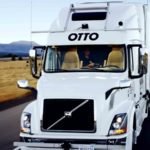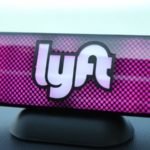Smack Me and I'll Smack You Back!
Waymo, which is a brainchild of parent company Alpahbet (Google), is holding court in San Fransico alleging that former employee Anthony Levandowski downloaded (stole) documents from Google's database. Waymo claims that Mr. Levandowski conspired with Uber even before leaving Google.
Upon leaving Google, Mr. Levandowski and partner Lior Ron, founded Otto in January 2016.

Soon afterwards, August 2016, the company was acquired by Uber.
Waymo claims this breakneck speed acquisition was planned from the beginning. Evidence revealed during the case that correspondence between Uber executives discussing acquisition of a start-up with Mr. Levandowski in early 2016 while he was still working for Google as an engineer on the autonomous driving team. However, it's still not clear if Uber is truly insulated from Mr. Levandowski's downloading actions.
The Federal District Court in San Franscisco must decide the veracity of the case, but Waymo is not stopping with Judge William Alsup's verdict.
Waymo recently dropped many of the IP claims from the Uber case, since Uber conceded by promising not to use a device created by Anthony Levandowski and even firing Mr. Levandowski, but the court is not the only place to fight.
Waymo can also cry to it's mommy, Google, and when mama bear is angry, there will be repercussions.
The big claw across the face: Google struck a deal with Uber-rival Lyft to develop self driving cars.

Waymo and thus Google, have a deep desire to beat Uber. This is yet another decision by Uber, naive or not, that hurts the company image, culture, and could significantly dent their bank account.
Lyft is gaining market-share steadily and when we enter into the next phase of the rideshare economy, having a partnership with Waymo could propel them to leader of the autonomous pack.
So, this is why Uber poured millions into it's own mapping/navi system for drivers, Google Maps is a growling pain!
I dislike the idea of "self-driving" cars on the roads. Every computer uses algorithms and there are always many kinks to work out. The greater the scope and variable factors in the program, the more kinks there will be. The largest issue is that unlike normal software where most, if not all, environmental variables, can be controlled, a self-driving car must function in the real world in an environment where many variables cannot be controlled. A mistake in an algorithm can mean the difference between life and death when it is powering a two thousand pound hunk of metal along a busy highway.
Sabrin514 you are right, many things must work correctly before this can be a reality. As you know, many BIG players are working on this and they are not far from realizing the ultimate end. However just like downloading a file or charging a batter, the first 90% happens quickly, it's the final 10% that will take the longest and be most difficult hurdles to overcome. See my latest post for one such hurdle that is out of the OEM's control. https://steemit.com/smartcities/@electric-d/is-5g-needed-for-smart-cities